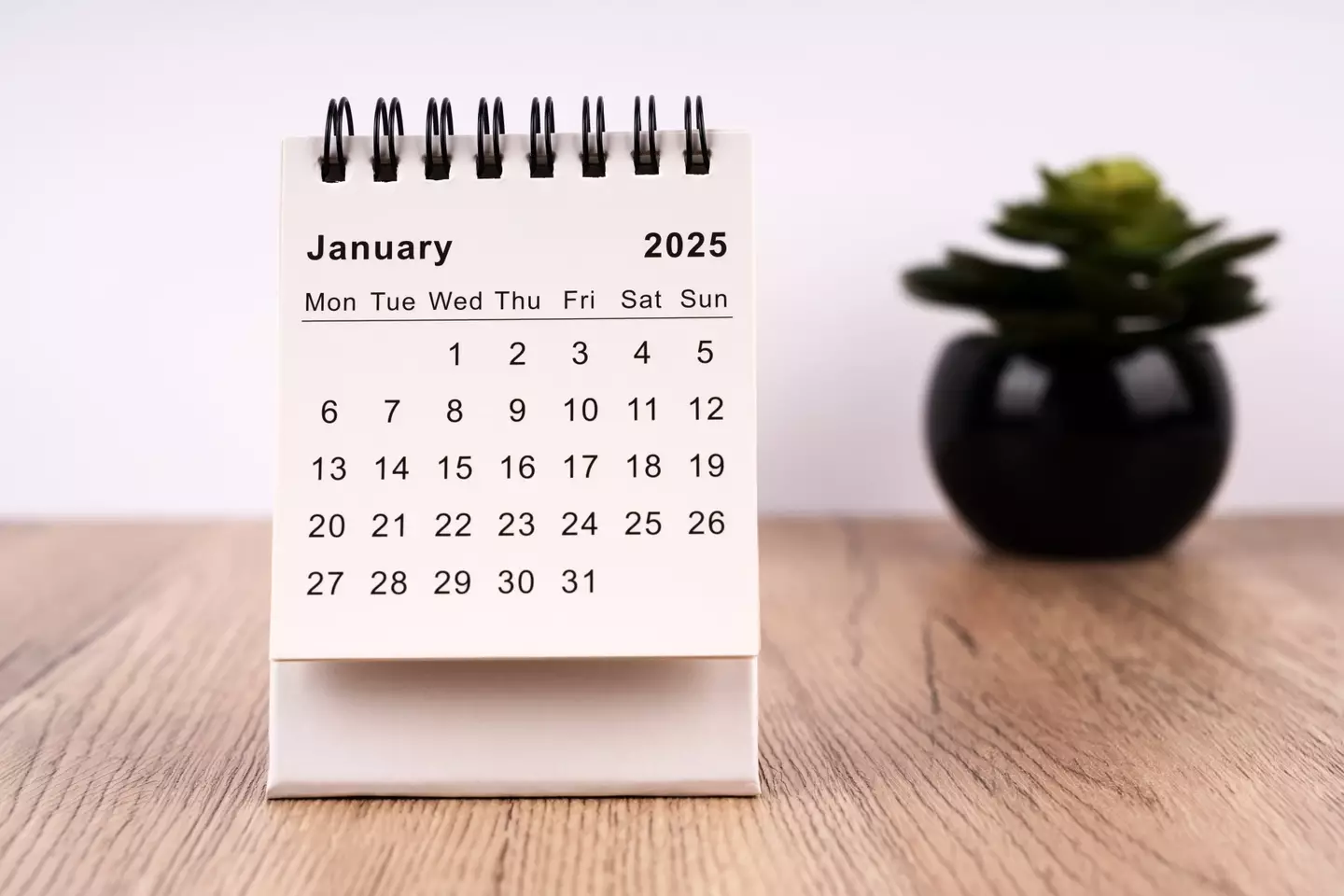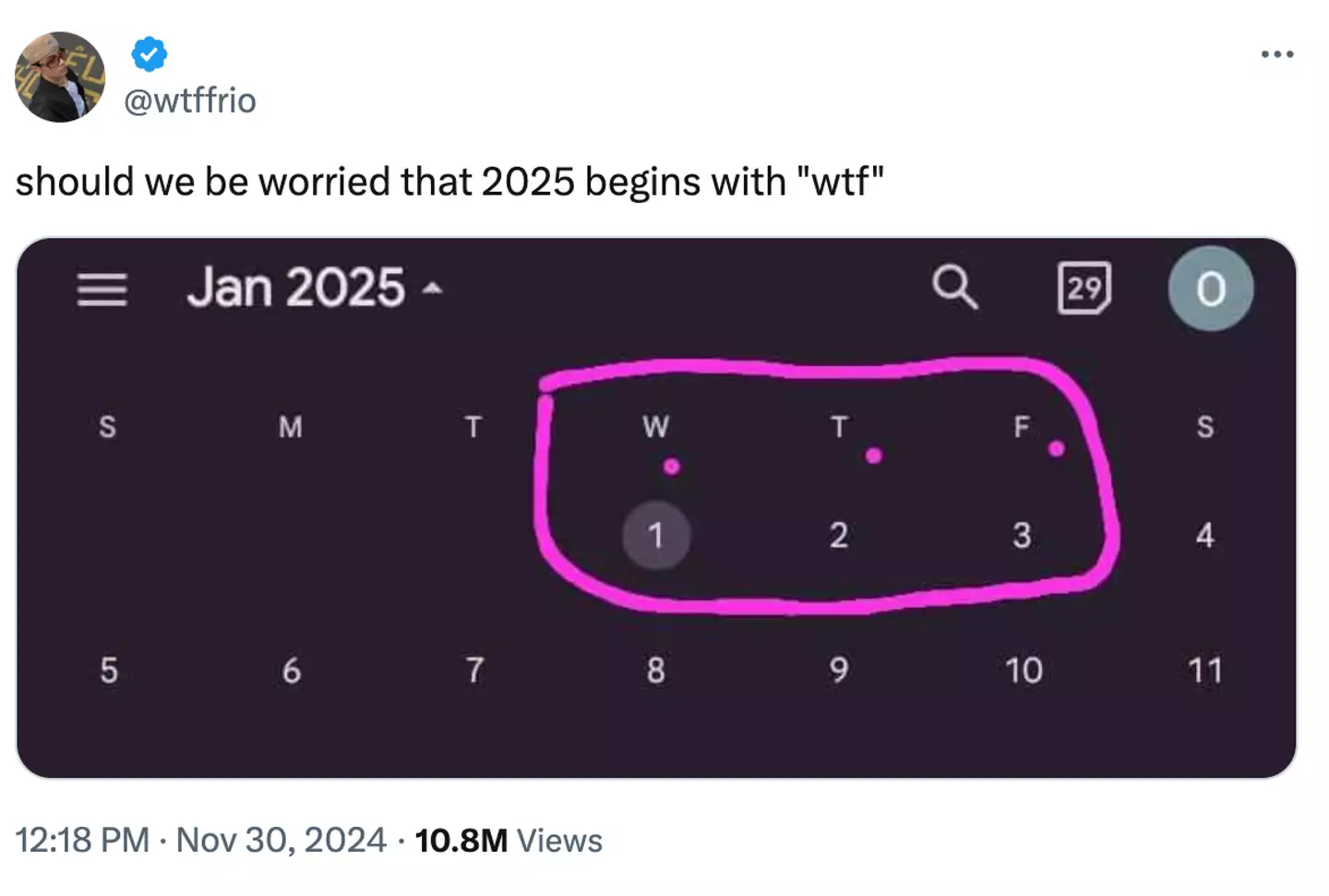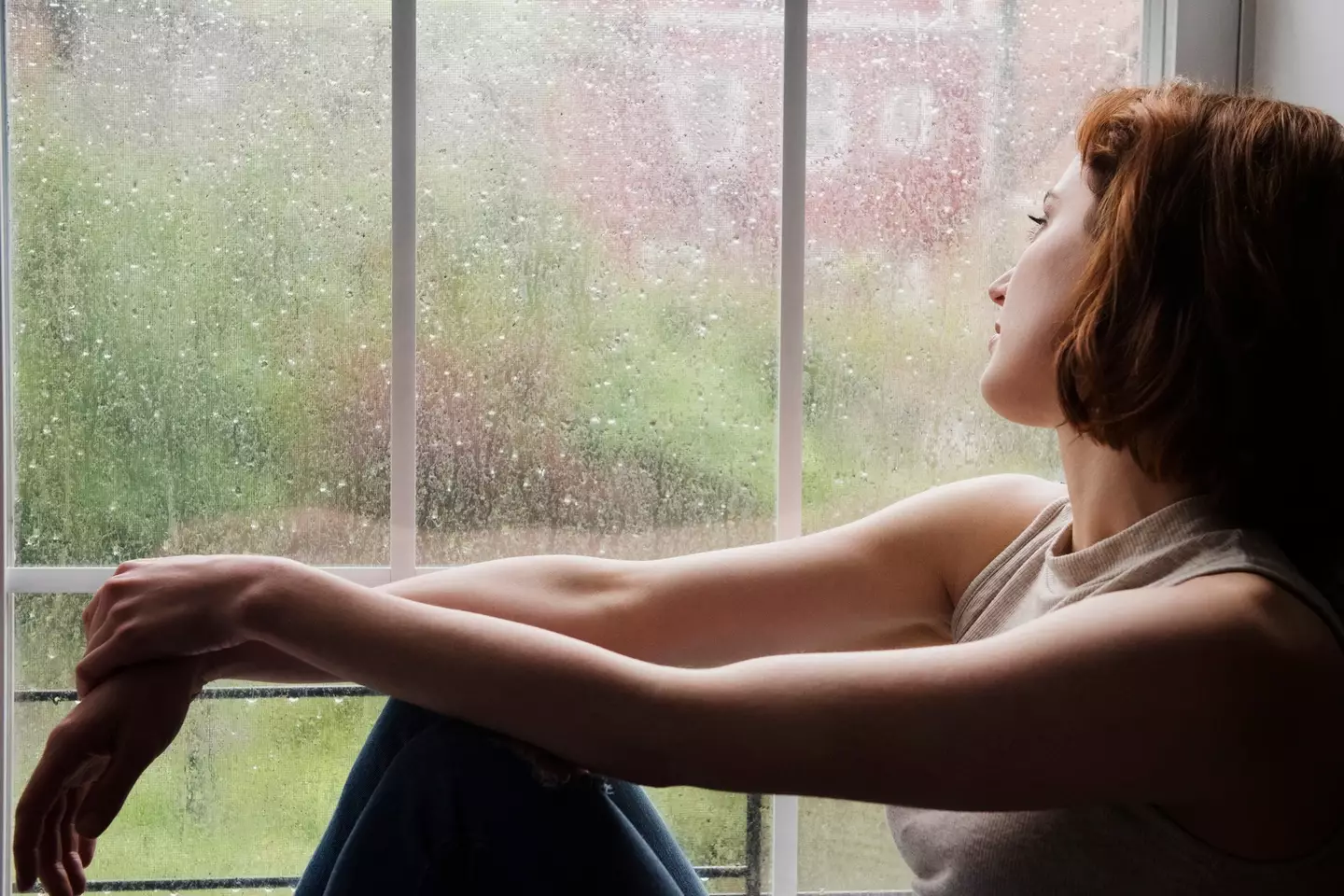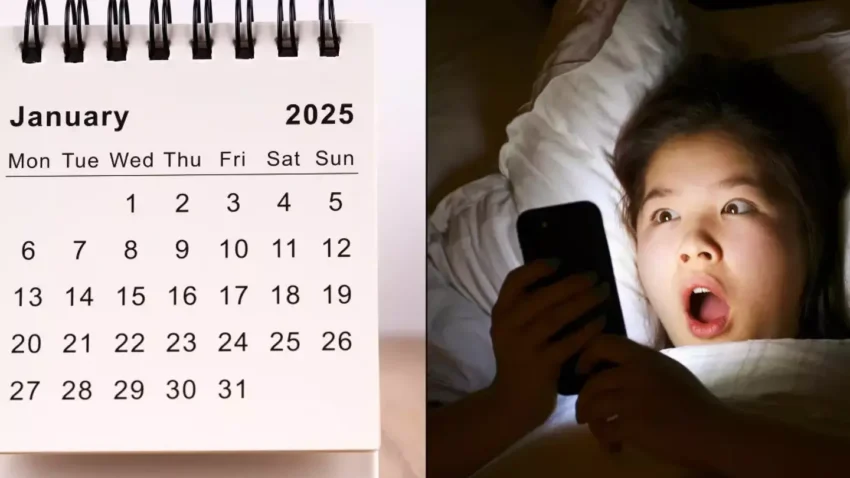Seriously, how are we almost in 2025?
Mentally, I’m still in 2008, when United were winning Champions Leagues and Ne-Yo was in his ‘Miss Independent’ era.
Social media was just starting out and a mobile phone was only used for calling and BBMing.
The good news is we’ve still got Christmas to come before the ‘New Year, new me’ Instagram stories start flooding the news feed. Just trying to find a treadmill at the gym in January is tough enough.

2025, already? (Getty Stock Images)
But with the slowest month of the year very nearly upon us, eagle-eyed Twitter users have spotted something very ‘worrying’ in the calendar.
Similar to 2020, when we thought the world was ending with the spread of corona, the dates for the 1st, 2nd and 3rd of January are a Wednesday, Thursday and Friday.
If you take the first letter out of those three weekdays, you get… drum roll please… WTF.
And let’s be honest, ‘what the f**k’ is what many are already thinking heading into the New Year.
One user wrote: “Should we be worried that 2025 begins with ‘wtf?'”

Is this bad news for us? (wtffrio/Twitter)
As another person wrote: “Every year is worse than the previous one anyways. It’s fine.”
And a third penned: “Well now i’m worried because the last time that happened was in 2020 and we all know how that year went.”
Typically, January can be one of the lowest times of the year; you wake up for work, it’s dark. Leave work, it’s dark.
This comes after ‘around two million people in the UK‘ have Seasonal Affective Disorder (SAD), defined as ‘a type of depression that you experience during particular seasons or times of year’.
“Depression is a low mood that lasts for a long time, and affects your everyday life,” according to mental health charity, Mind.

Many of us experience SAD in January (Getty Stock Images)
“If you have SAD, you’ll experience depression during some seasons in particular, or because of certain types of weather or temperature. You can experience it in winter or summer.”
The reason most people like warm and sunny weather is apparently ‘due to the vitamin D and serotonin that sunshine brings’, suggests Smriti Joshi, lead psychologist at Wysa.
“So cold weather, dark nights and a quieter life will make us feel low. That’s perfectly normal and nothing to worry about,” she explained.
“At the same time, there’s no doubt that the cost of living crisis and affording the fuel and food to keep us warm will be increasing anxiety.”
